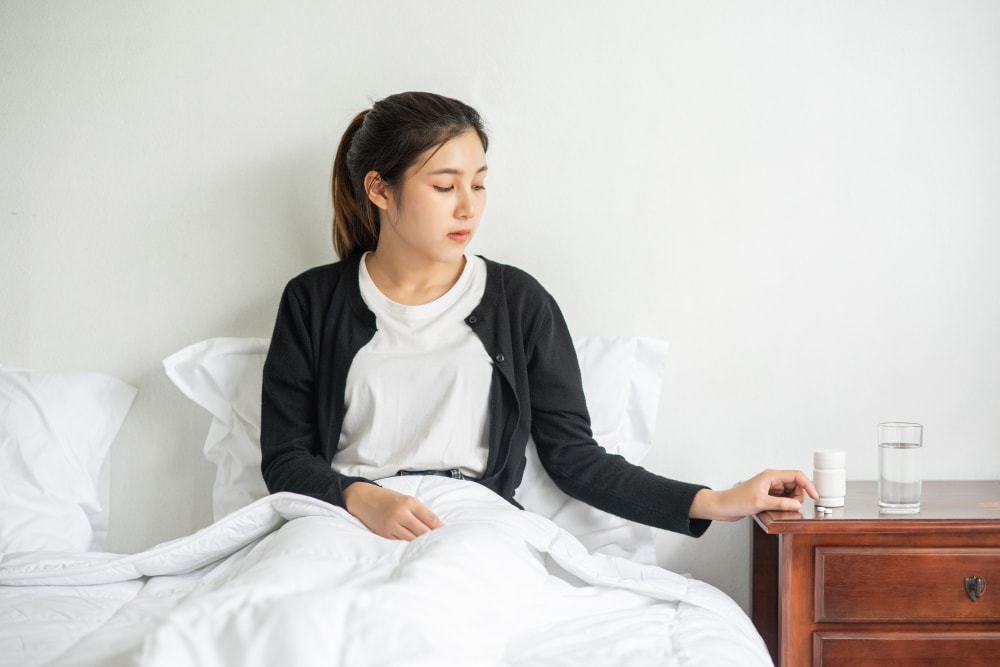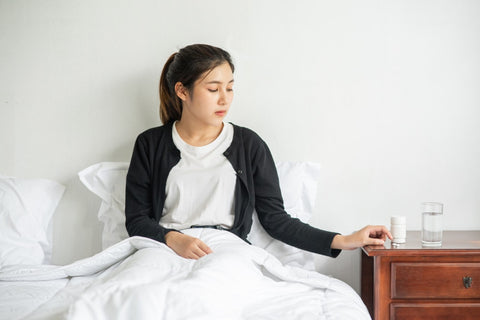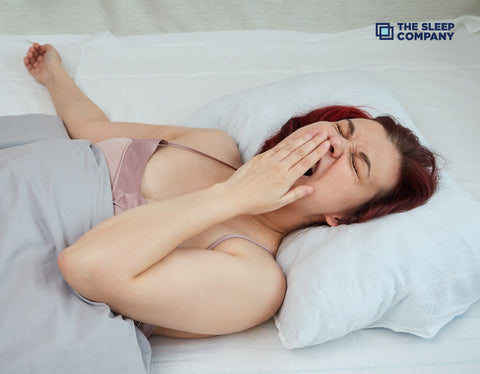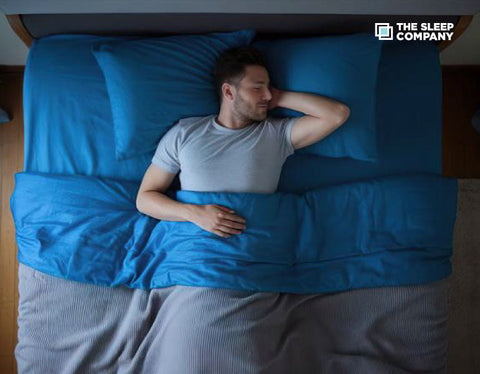My Cart

Hormones: The Underlying Cause of Sleep Problems

Hormones are vital in the functioning of the human body. Technically speaking, hormones are the molecules that act as a communicator between the brain and other organs to perform distinct physical and cognitive actions such as growth, reproduction, emotions, hunger, and sleep. In fact, hormonal changes and sleep patterns are interrelated, as one triggers the other, and overall, both bring a drastic change in a person’s physical and emotional health.
Having sleepless nights can have many reasons, and hormonal changes are one of them, with a significant impact. Therefore, to find a solution to keep hormones in check to get those quality hours of sleep and not just lying on the mattress tossing and turning, it’s essential to know which hormones are responsible.
Hormones affecting sleep

Cortisol
Adrenal glands produce Cortisol, which is in the kidneys and is best known as the stress hormone. It helps to control your metabolism and minimize inflammation. Also, when Cortisol is released, it elevates your blood sugar levels and blood pressure in anticipation of physical work.
Cortisol production follows the same circadian rhythm as our body. Therefore, it rises in the morning and declines as night comes near. Generally, the rise in Cortisol level makes you wake up early in the morning in a fresh mood. And as the day progresses, the level of Cortisol starts decreasing. The rise in the level of Cortisol usually occurs when you face a stressful situation. Therefore, if you struggle with stress, you may find it difficult to sleep as this emotion increases cortisol levels while lowering melatonin levels
Melatonin
The brain’s pineal gland produces Melatonin, which is well known as the sleep hormone. The production of Melatonin depends on daylight. The darkness causes the pineal gland to produce Melatonin while light stops the production. Melatonin regulates circadian rhythm and helps to manage the sleep-wake cycle.
The rise in Melatonin leads you to fall and remain asleep at night, while the decline of Melatonin level means sleep deprivation. Multiple reasons can cause an imbalance in Melatonin, such as a rise in Cortisol level, exposure to light during sleep hours, changed circadian rhythm, constant traveling between continents, etc.
Estrogen
Estrogen or Oestrogen is mainly produced in women’s ovaries, while adrenal glands and fat cells pay small amounts. They are present in both men and women. It is best known as sex hormone or falls in the category of sex hormones whose primary work is related to the reproductive system, menstrual cycle, and other essential functions. Though Estrogen doesn’t directly affect the sleep cycle, it plays a vital role in functioning.
The level of Estrogen keeps fluctuating during menstrual periods of women. And during menopause, Estrogen levels can slump abruptly, bringing various symptoms such as hot flushes, irregular periods, mood swings, and body pains. This further impacts sleep quality as night flushes can wake you up with excessive sweating. And if your mattress has material with absorbable quality, then changing it with the Sleep Company’s mattress, which has the SmartGRID technology with 2500 air channels, is worth trying.
Progesterone
Progesterone is another female sex hormone, just like Estrogen. The adrenal cortex, gonads which consist of the ovaries, and the testes produce Progesterone hormones. It helps to maintain the uterine lining in the event of a pregnancy, which is why women have high progesterone levels following ovulating until they gradually fall. Other roles Progesterone plays as neurosteroids, anti-anxiety, and sleep-inducing hormones.
A drop in Progesterone level during the menstrual periods or menopause highly impacts sleep patterns. Also, low levels of progesterone hormones sometimes mean high levels of Estrogen, which results in mood swings, night flashes, cramping, and fluid retention. It is better to take prescribed medications by the doctors if you face an imbalance in the levels of Progesterone or Estrogen, at that matter.
Testosterone
Testosterone is a male-dominant sex hormone found in both males and females. The testes mainly produce Testosterone; the hypothalamus and the pituitary gland control it. It plays a significant part in the reproductive system of males and females. It also helps males to manage muscle and bone mass. Like Estrogen and Progesterone, males don’t face an immediate drop in the level of Testosterone, but it declines slowly over the years.
However, the decline in testosterone level affects your sleep. Since the levels of Testosterone keeps fluctuating during the day while being at the highest peak during REM sleep. Suffering from REM sleep issues can cause issues in Testosterone levels and visa-versa.
Thyroid
Thyroid glands produce thyroxine and triiodothyronine hormones. They are essential for regularizing metabolism, digestive functions, brain development, and emotional behavior.
The thyroid gland becomes too much activated (Hyperthyroidism) or not activated as required (Hypothyroidism), causing significant hormonal imbalance. However, despite any condition, it does affect sleep patterns.
While Hypothyroidism makes you feel sluggish and tired, Hyperthyroidism makes you nervous and irritated and increases heart palpitations and sweat bouts. In both cases, it widely affects sleep patterns.
Also, Hypothyroidism which causes fatigue, can lead many people to sleep apnea. It is better to take medical help in case of thyroid imbalance rather than just home remedies.
Bottom Line:
Once we know how hormonal imbalance affects your sleep, it becomes vital to take help of things such as dietary changes, exercising, creating a sleep schedule, comfortable sleeping environment along with proper mattresses, ventilation, and darkened surroundings becomes primary. Apart from these home remedies, seeking a doctor’s help is necessary.





























































